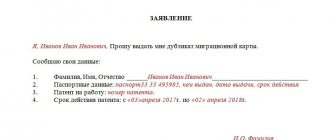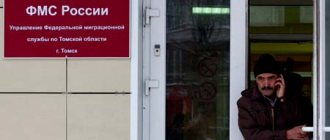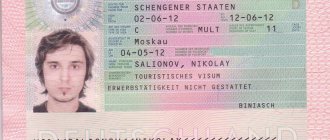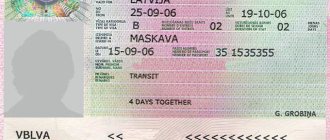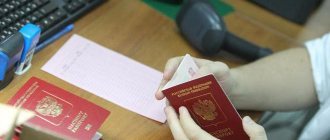Germany is one of the most attractive countries for labor migration, where a foreigner can relatively easily get a highly qualified job. Unlike the USA and Great Britain, Germany does not have so-called visa sponsorship. To obtain a residence permit here, all you need is a signed employment contract.
Despite the crisis, German companies continue to hire.
Thus, in April 2021, 626 thousand vacancies were published. Compared to the same period last year, the drop was about 20%, which is much less than in the UK, France, Spain, Italy and the USA. The main blow fell on the gastronomic, tourism and automotive industries. At the same time, for example, the sector is growing.
Compared to the American market, the German system is coping with the crisis significantly better: at the end of April, the unemployment rate in the United States was 20.6%, while in Germany it was 5.8%.
Finding a job from abroad today is much more difficult than a year ago. However, with the proper qualifications and correct positioning in the market, you have a chance. It is important to approach the job search process strategically.
Young Entrepreneurs Young Awards 2021. Apply now.
Are we needed in Germany?
The systematic shortage of labor resources is recognized by Germany at the state level. According to politicians, about 500,000 migrants should come to the country every year to fill it. To this end, the state simplifies the employment of foreigners. As of March 2021, a new migration law came into force in Germany. Previously, it was possible to offer a job to a foreigner only after permission from the employment service - it made sure that Germans were employed first. Now, for positions that require qualified specialists with both higher and specialized education, such verification is not needed, which means you can get a job faster. In addition, specialists can now come to Germany without a signed contract in order to look for work. The main conditions are the presence of a profession (diploma) and confirmed knowledge of German at a level not lower than B1. You can stay in the country for up to six months, however, you need to have funds to survive these months.
The situation on the labor market for migrants
In recent years, the population of Germany has increased significantly. Thanks to arriving migrants, the population is now almost 83 million people. At the same time, the country manages to maintain a fairly low unemployment rate for developed European countries - 3.3%; the youth unemployment rate also remains at a decent level - 6.1% (8th place in the world ranking).
For Russian citizens, Germany is one of the priority destinations for emigration. According to Rosstat, the number of people immigrating to Germany from our country ranges from 4,000 to 4,800 people per year.
According to German statistics for 2021, Russians make up 7.2% of the total number of people who migrated to Germany for various reasons (we are talking about citizens or not yet citizens of the country with a migration background, i.e. either they themselves migrated or are descendants migrants). And there are much more Russian-speaking citizens - about 15% of families speak this language at home. These statistics indicate that citizens from the CIS have every chance of settling comfortably in this state.
Soon the number of applicants from our (and not only) country may increase significantly.
In December 2021, a bill was adopted on changes to migration legislation, simplifying the employment procedure for qualified personnel from third countries (not Germany or the European Union). The changes come into force on January 1, 2021 (https://www.bundesregierung.de/breg-de/aktuelles/mehr-fachkraefte-fuer-deutschland-1563122).
These measures are designed to:
- fill the shortage of educated specialists in various fields (about 1.2 million available vacancies);
- reduce the number of illegal migrants;
- reduce the burden on the social security sector;
- strengthen control over the migration of specialists, directing them to those sectors of the economy where there is a shortage;
- increase tax revenues to the budget.
Key points:
- The bill was created for citizens with special or higher education. It is expected that the diploma nostrification procedure will be simplified.
- Proficiency in German is required (proficiency level has not yet been established). Creation of language courses for specializations.
- Issuance of a visa that allows the applicant to look for work while staying in Germany for 6 months.
- Full self-sufficiency for the duration of the job search.
How can a foreigner find a job in Germany?
Job sites and exchanges
The Germans themselves prefer to look for work via the Internet. Most employers often recruit employees there. In addition to vacancies, job sites often contain useful information: how to write a resume, how to write a letter of recommendation, how to communicate with a potential employer, what salary to expect, what are the taxes in the country, etc.
A good example of a purely informational resource about working in Germany is e-fellows.net. There is a lot of practical advice here, especially if you are a “newbie” in the field of job search in Germany.
There are two types of job search sites:
- Search engines
They offer a list of vacancies, but do not allow you to create a resume or create a profile. Most popular:
- adzuna.de;
- jobanzeigen.de;
- jobscanner.de.
careerjet.de;
They provide an opportunity for employers to post vacancies, and for candidates to fill out their own resume on the website, receive invitations from potential employers and monitor available vacancies. These include:
- stepstone.de is the largest exchange in Germany. There are about 60,000 vacancies posted here. Moreover, the main services are free.
monster.de is the world's largest job search portal. There are not only vacancies here, but also a lot of useful information.
There is another category of work sites – specialized ones. Those who are interested in a position in a specific field can find an attractive vacancy here. Eg:
- Graduates, students, young professionals: jobmensa.de, studentjob.de, die-masterarbeit.de/.
- Translators: toplanguagejobs.de.
- Startup jobs: berlinstartupjobs.com, startup4me.com.
- IT: ictjob.de.
- Hotels and restaurants: hotelcareer.de, gastrojobs.de, hoteljob-deutschland.de.
- Science: academics.de.
- Management, finance: experteer.de, efinancialcareers.de.
- And a few more sites:
- jobanzeigen.de
- jobs.de
- stellenanzeigen.de
- aktuelle-jobs.de
Federal Labor Exchange
The Federal Labor Exchange allows you to find work both with and without higher education in various parts of Germany. It works not only in German, but also in English and French.
The website shows how many vacancies in a particular specialty are available in a particular city. Both regular and advanced searches are carried out: taking into account the type of employment, length of the working day, size of the organization, etc.
Social media
The most popular ones for finding a job are Xing and Linkedin. Moreover, the first is focused primarily on German companies, and the second on international organizations. Create a profile here, take the time to fill it out - and perhaps very soon a headhunter will find you.
Company websites
There are many large manufacturing enterprises in Germany: Bosch, Audi, Siemens, Daimler, IBM Deutschland, etc. Therefore, if you want to get a job somewhere specific, go to the website of the relevant company and look for the “Job” tab (Karriere, Jobs, Jobangebote). See what specialists are required.
If you manage to find the appropriate position, write, or even better, call the number provided. If not, but you understand that you can be useful at this company, send your resume to the specified email address. Naturally, at a minimum - in English, and better - in German.
Work visa and work permit for Russians and not only
Procedure for obtaining a work visa
Citizens of the Russian Federation, Belarus, Ukraine and other non-EU countries are required to obtain a work visa to legally work in Germany.
Documents required to obtain a work visa
- statement indicating personal data in German;
- photograph 3.5x4.5 cm;
- valid international passport;
- internal passport;
- confirmation of payment of the fee;
- invitation or contract signed by the employer;
- work permit.
After submitting documents to the consulate, the original is checked against copies and returned to the applicant.
If a job seeker does not have an invitation from an employer, he can use a special visa permit to search for work. This type of permit is issued for a period of up to 6 months if the applicant can demonstrate his financial viability to live in the country while looking for work. In this case, you must provide:
- international passport;
- a motivation letter outlining the reasons for looking for work in Germany;
- a diploma of German higher education or a confirmed foreign one;
- summary;
- bank confirmation of the availability of the required amount for stay in the country (the amount must be clarified at the consular department of the German Embassy, as it is regularly reviewed);
- health insurance.
In addition, the applicant may be required to provide additional documents, the list of which may be individual in each specific case. It is prohibited to work in Germany with this visa permit. If a migrant (Russian, Ukrainian, Kazakh) quickly finds a job, he needs to get a work visa.
To obtain a work visa you must provide a standard package of documents
Work visa extension
Initially, as a rule, a work visa is issued for 3 months, and upon arrival in the country, the employee receives a residence permit for the period specified in the contract. If the contract is indefinite, the visa is issued for 2 years. At the end of the validity period, the visa can be extended for another 2 years if you have a job. After 5 years, you can apply for permanent residence. During the first three years you are not allowed to change employer. If you lose your job, you must find another one within 3 months and get a new visa. Blue Card holders can change employers and request permanent residence after 2 years.
Employment under the EU Blue Card
Citizens of non-EU countries can find employment in Germany using the Blue Card, which is a temporary residence permit in the country for highly qualified specialists, and also provides a simplified scheme for entry into the country for members of their families. Among the conditions for obtaining a Blue Card are higher education (German or confirmed) and a contract indicating the salary, which should be ≈ 50 thousand euros per year. Spouses of Blue Card holders are automatically issued a work permit. In this case, registration with the federal labor exchange is not required.
Video: employment using the Blue Card
Work permit in Germany
To carry out labor activities in Germany, current legislation requires that a migrant from a non-EU country have a special permit from the federal labor office. A work permit can be:
- with restrictions on the type of activity and a specific enterprise;
- without such restriction.
Who does not need a work permit
EU citizens, foreigners with a permanent residence permit, and persons staying in Germany on the basis of bilateral international agreements do not require a work permit. In addition, the following groups of foreigners are exempt from obtaining such a permit:
- personnel of transport companies whose legal address is located outside Germany;
- persons with a permanent place of work abroad who arrived to install or repair equipment for a period of up to 3 months;
- persons with permanent residence outside Germany who arrived as professionals for a period of up to 3 months;
- persons with one-day casual earnings;
- employees of universities and research institutes, subject to public interest in their employment;
- international exchange students;
- diplomats and consuls;
- accredited media workers;
- professional athletes and coaches, if their qualifications are officially recognized and their stay in the country is paid for;
- NATO representatives;
- persons carrying out activities outside the country in the interests of a German employer, for a period of up to 3 months;
- students who arrived for internship in their specialty for up to 6 months;
- foreigners born in Germany.
Types of work permits
According to current legislation, the general concept of a work permit is divided today into:
- Arbeitsterlaubnis - work permit.
- Arbeitsberechtigung - right to work.
By law, a work permit is granted to a foreigner if he does not take the place of an EU citizen. The working conditions of a foreign citizen must be no worse than those of a German citizen. One of the conditions for granting Arbeitsterlaubnis may be legal residence in the country for a certain time.
The right to work is granted to foreign citizens who have a residence permit, subject to certain conditions. The right to work has no restrictions on the type of activity, a specific enterprise, region, and can be issued for an indefinite period if the foreigner:
- has a residence permit and lives with a family member who is a German citizen;
- has the right to political asylum in the country;
- has a refugee identity card issued by the German authorities;
- arrived in the country as a refugee as part of a humanitarian action;
- resides legally in the territory of the state for 6 years.
Non-EU workers arriving in Germany are divided into:
- guest;
- seasonal;
- maintenance contracts.
Guest workers can stay in the country from 12 to 18 months, seasonal workers - up to 3 months, contract workers - up to 2 years. The number of guest workers is limited for each country; for Russia it is 2000 people per year. A permit for seasonal work can be issued subject to bilateral agreements between countries.

Permission for seasonal work is given for a period of up to 3 months
Documents required to obtain a work permit
An application for a work permit is usually submitted to the Federal Labor Office by the employer. The employee must prepare the following documents:
- valid international passport;
- photos;
- documents confirming the level of education and professional skills;
- confirmation of sufficient funds to live in Germany;
- documents specifying the place and conditions of residence in the country;
- health insurance.
If the package of documents is complete, then the decision is usually made within seven days, after which you can apply for a work visa.
Requirements for foreign workers
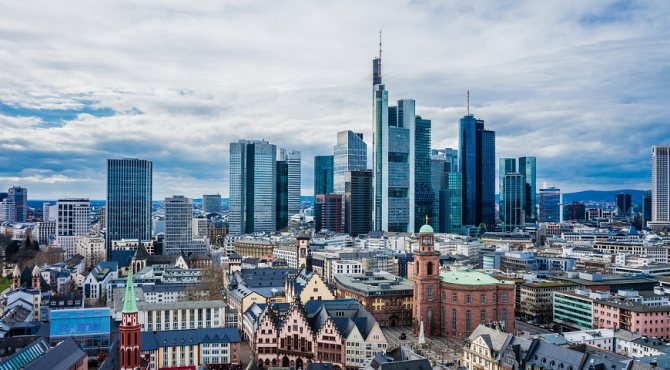
Language knowledge
Lately this has been a very important condition. You can find many vacancies that require only basic knowledge of the language, but these are mostly blue-collar jobs. For highly qualified personnel, you need to know German at a level of at least B1, although in some cases you can get by with good English.
Often, knowledge of German becomes a prerequisite for permission to enter the country. In this case, you will need to provide formal confirmation of your level of knowledge. It can be obtained from the Goethe-Institut and several other organizations.
Confirmation of qualifications (diploma)
If you want to work in your specialty, you must understand that your diploma must be comparable to a German one and, in principle, be recognized as a diploma. To check this point, the Ministry of Foreign Affairs created a special database in which all educational institutions in the world are entered with a note whether their diploma is recognized or not. If your diploma is not in the database, then the verification scheme is more complicated.
But even if your diploma is in the database, this does not mean that you can immediately start looking for a job. In Germany there is a list of “regulated professions”: in order to get the opportunity to work in the country, such specialists will have to complete their studies for several semesters, undergo an internship and pass a state exam, receiving a certificate of recognition of their diploma.
Moreover, confirmation is not always required. For example, if you are a doctor, your diploma is checked to ensure it is in the database, after which you become an assistant, undergo an internship, and only then pass the state exam. If you are an engineer, recognition of an international level diploma is sufficient for gainful employment. You will only need to take a qualifying exam if you decide to open your own office.
To have your diploma recognized, you need to contact the appropriate institute, finding it in the same MFA database. There you will also find a list of “regulated” professions.
If your profession is not included in the list of “regulated” ones, fill out a form on the same anabin website, after which a letter with step-by-step instructions will be sent to your email address. The procedure is paid: €200 for the first confirmation and €100 for subsequent/repeated confirmations. BUT! If your diploma is in the database marked H+, then consider it has already been recognized. In this case, the main confirmation of your qualifications is hiring. For the embassy, a printout from the database is sufficient.

Visa for a tourist trip to Germany
To travel to Germany, you can apply for either a Schengen visa (stay less than 90 days) or a national visa (stay over 90 days). Find out how to get a visa to Germany yourself.
Required documents to obtain a visa to Germany:
- a completed and signed application form (you can download the application form and read about the requirements for photographs on the VFS.GLOBAL website);
- a foreign passport valid for at least 3 months after the date of departure from the Schengen zone and not older than 10 years. The passport must have 2 blank pages;
- a copy of the first page of the international passport;
- copy of internal passport;
- two photographs meeting ICAO requirements;
- visa fee (consular fee - 35 euros, service fee - 18.85 euros);
- health insurance valid in Schengen countries;
- hotel reservation;
- copies of air or train tickets - proof of the travel program;
- proof of employment or financial solvency.
You can also find detailed information about visas for tourist and other trips to Germany on the website of German representative offices in Russia.
Accommodation while traveling. Find hotels at the best price on Rumguru, a world-famous service. There you can also read useful traveler reviews about hotels, attractions, cafes and restaurants.
private when traveling , then it is better to look for them on the popular rental service from Airbnb.ru owners - there you can find very cozy accommodation at any price!
How does the hiring process work?
As already noted, for most vacancies from 2021 there is no need to obtain consent from the state labor exchange. Moreover, in search of work, a foreigner can independently come to Germany with a special visa. However, the main method is still a preliminary job search and concluding a contract or at least a job offer as justification for obtaining a visa.
Obtaining a visa
With a contract or job offer in hand, you can already contact the German embassy. As a result, you receive a long-term/indefinite residence permit, and, if you meet all the conditions, a national visa type D.
There is another option. Highly qualified specialists can apply for an EU Blue Card. To do this, you need to meet two conditions:
- you have a higher education (the diploma is recognized or equivalent to German);
- guaranteed salary: from €38,688 per year - for scientists, doctors, engineers, mathematicians, IT specialists, designers, architects, geologists and from €49,600 - for workers in other fields.
Blaue Karte holders can obtain permanent residence after 21 (with knowledge of German at level B1) or 33 months. Such permission is issued for the duration of the contract plus 3 months. Moreover, you must either work for the first two years with the original employer, or receive a new card when he changes. Another “bun” is simplified entry into Germany for family members: knowledge of the German language and immediate receipt of a work permit are not required.
The situation becomes more complicated if you do not have a higher education . If your profession is on the white list above, you have an advantage. The procedure here is similar to higher education: if you have a diploma of vocational secondary education, then you need to have it recognized, find a suitable vacancy, conclude a contract and you can apply for a national general visa (see the list of documents on the website of the embassy of your country/city).
A national visa is issued after 1.5-3 months and upon arrival in Germany, within 7 days it is exchanged for an Ausländeramt - residence permit with a standard period of 2 years or for the duration of the contract. Then the residence permit is extended, and after 5 years you can obtain permanent residence. As we have already said, the procedure is accelerated for Blue Card holders.
Subtleties and nuances of legal employment
In order to obtain the opportunity for legal employment along with permitting documents, you must have a very popular rare specialty, knowledge of the German language must be at the highest level, especially if you have a technical profession, then you need to know specific terms. It is also necessary to have experience and professional skills, qualification certificates and a diploma that is recognized in Germany. Work experience must be five or more years.
The year 2015 brought an unexpected surprise for many wishing to work in Germany, as the German government became more loyal to labor emigration, so they introduced a number of amendments that make life easier for professional workers and their employers.

If the work is seasonal, then the employer invites the worker through the embassy and signs a contract with him.
Such a worker will be issued a visa quite quickly, but the authorization document will be issued only for the time specified in the contract. In rare cases, when seasonal work takes several years, the visa can be issued for a year with the right to extend. The length of stay in the country plays a big role for migration services, and everyone monitors visa expiration very strictly.
Popular specialties
Highly qualified specialists
Specialists with the highest salaries are most in demand in Germany. First of all, we are talking about engineers and doctors. In the first case, the country does not have enough university graduates - the number of workers of pre-retirement age is noticeably higher. This is especially true for electrical engineers. A similar situation is in medicine. There is a shortage of young qualified doctors in the country, with the exception of dentists and pharmacists.
IT specialists and interface designers can easily find work anywhere in the world. And Germany is no exception here. Workers in the engineering and automotive industries are also needed, from production line workers to engineers and managers.
There is also a shortage of teachers, especially in subjects such as chemistry, mathematics, physics, biology and foreign languages.
Workers without special knowledge
If you look at the list of in-demand vacancies, among Russian-speaking citizens German employers are most often looking for workers in factories (machine-building, grocery, cosmetic production), drivers, mechanics, general workers in shops and restaurants, receptionists in hotels, cooks, construction workers, and caregivers.
In such cases, a frequent condition is the presence of at least basic knowledge of the German language. Sometimes the employer offers payment for courses with a stipend and housing during the training.

Work in Germany in 2021 with the right to a residence permit - how to confirm your knowledge
Main parameters for suitability of potential foreign workers:
- Level of professional education.
- Knowledge of German language.
This means that every foreign applicant must provide proof of completed professional education. This must be a minimum of two years of vocational training.
The Germans are very demanding about the level of knowledge of their language. They require foreigners to speak German at level B1 and above. These are quite high requirements.
The idea of new norms in labor law has been around for 8 years. German officials wasted no time. They managed to create databases of professions and databases of educational institutions in third countries.
Our compatriots must understand that after the selection there will definitely be foreigners who did not meet the requirements. They will be denied a residence permit on the basis of their work. However, they will still have an alternative.
If the applicant’s qualification level does not meet the requirements, then foreigners may offer such a person to come to Germany to obtain the appropriate level of qualifications - to complete their studies at a German educational institution. Of course, all this will be at the expense of the migrant himself. German education at public universities is currently free. However, international students will need to cover the costs of semester fees, housing or dormitory rent, food, communications and transportation at their own expense. To study, they will be provided with a student visa, that is, a temporary residence permit on the basis of study.
Upon completion of their studies, foreign students have the right to extend their residence permit for another year and a half to search for official work. As soon as they sign an employment contract, the basis of their residence permit for employment will be changed. And in two years they will be able to apply for permanent residence - permanent residence.
In addition to confirming qualifications, it is necessary to prove a sufficient level of knowledge of the German language. This is done by providing a diploma from an accredited language school. Most often, foreigners use the Goethe Institute for this. It has branches in many major cities around the world. In Russia alone there are at least four branches of the Goethe-Institut.
Exams taken at the Goethe-Institut are recognized by the German Office for Foreigners. The holder of a certificate from this language school can have peace of mind when submitting documents to the German embassy, consulate or office for foreigners.
Another option is TestDaF, but this organization is less popular, especially in Russia.
We strongly recommend that our compatriots remember that the threshold for proficiency in German begins at level B1. To pass exams at this level, you need to study German intensively for 1 year or more.


